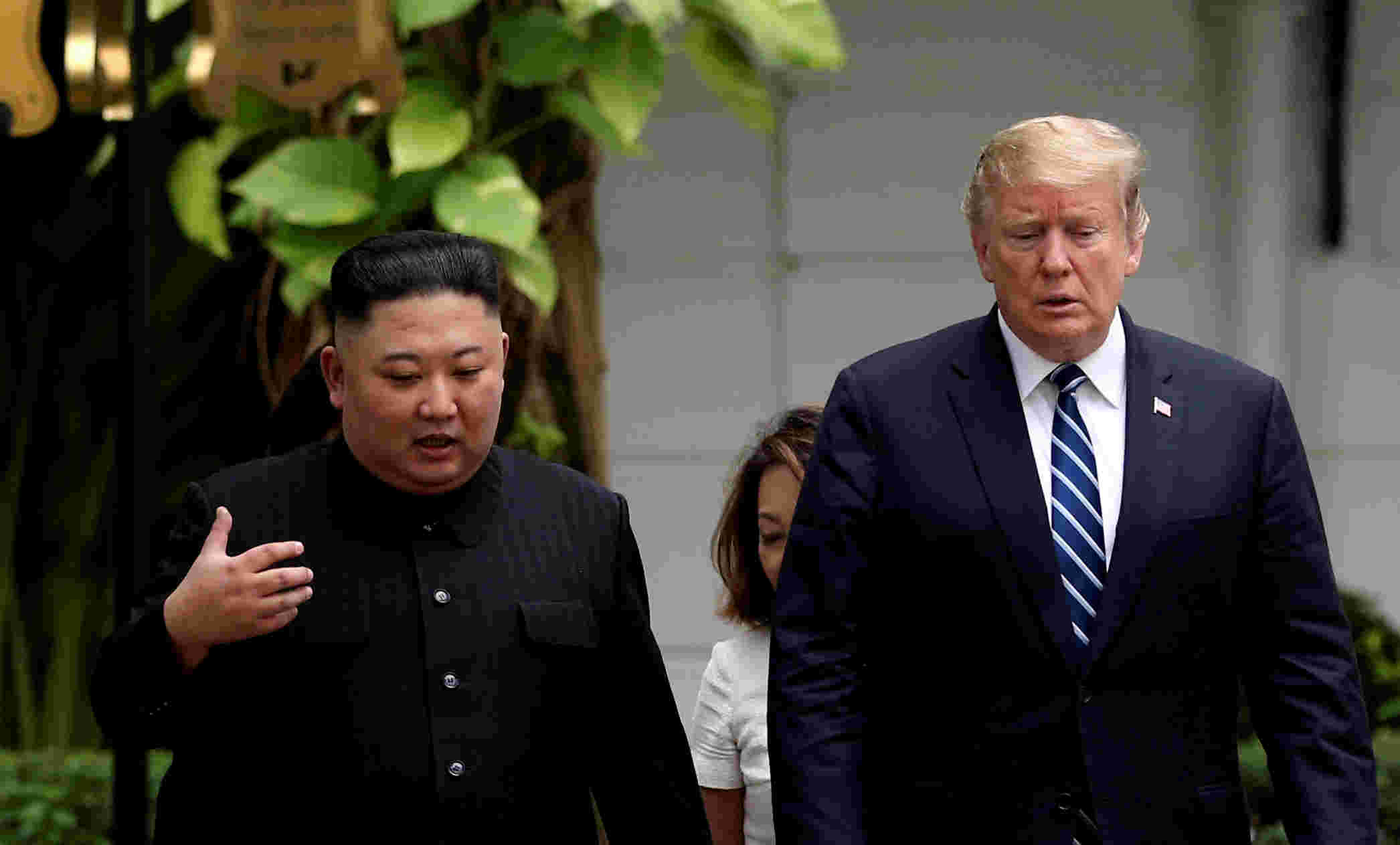
DPRK leader Kim Jong Un and US President Donald Trump talk in the garden of the Metropole hotel during the second US-DPRK summit in Hanoi, Vietnam, February 28, 2019. (Photo: CGTN)
US Special Representative for the Democratic People's Republic of Korea (DPRK) Stephen Biegun said on Wednesday that Washington wants to resume nuclear talks with Pyongyang.
On the same day, the US Treasury Department imposed new sanctions on the country.
Biegun, speaking at a Washington forum, said the United States had no pre-conditions for new talks with the DPRK, which have been stalled since a failed summit between President Donald Trump and its leader Kim Jong Un in February.
"The door is wide open to negotiations and [...] we expect and hope that in the not too distant future we will be reengaged in this process in a substantive way," he said.
Biegun said the United States was willing to discuss all commitments made by the two leaders at a first summit in Singapore last year, which included security guarantees for the DPRK. However, he stressed that progress would require Pyongyang to take "meaningful and verifiable" steps to abandon its nuclear weapons program.
Meanwhile, Washington has given no sign of a willingness to ease up on sanctions and on Wednesday announced punitive steps against a Russian financial institution for allegedly helping the DPRK evade financial sanctions by assisting a company linked to Pyongyang's primary foreign exchange bank.
It warned that those who "attempt to circumvent our authorities" to provide the North with access to the global financial market "expose themselves to significant sanctions risk."
It's rare for both messages to be sent the same day.
The dual action came amid renewed hope for a resumption of negotiations in the wake of what Trump described as a "beautiful" letter from Kim last week.
The US has insisted on maintaining a two-track approach of dialogue and sanctions.
The February summit between Kim and Trump in Vietnam ended abruptly without a deal due to gaps over the scope of DPRK's denuclearization and sanctions relief from the US
Biegun said that the DPRK negotiators were not empowered in pre-summit talks to discuss denuclearization and could only address the other issues of improving bilateral ties agreed to at the first summit in Singapore last June.
"Both sides understand the need for a flexible approach," Biegun noted.
Biegun, who was speaking before this announcement, stressed the positive role both Russia and China have played in efforts to persuade Pyongyang to give up its nuclear weapons and said he had "every expectation" that Chinese President Xi Jinping would send constructive messages on the issue during a visit to Pyongyang this week.
He also said both Washington and Pyongyang understood the need to be flexible in approaching further nuclear talks and that, while there had been no working-level talks with the DPRK since Hanoi, there had been "numerous communications between our governments."
Speaking at the same Atlantic Council event, Republic of Korea's nuclear envoy Lee Do-hoon called for a fourth summit between Kim and President Moon Jae-in.
"I urge North Korea (DPRK) to respond to President Moon's outstanding invitation to hold an inter-Korea summit, if possible, before President Trump visits (the Republic of) Korea next week," Lee said.
Trump is due to visit Seoul next week for meetings with Moon after taking part in the G20 meetings in Japan.


